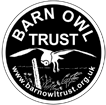 This is a brilliant resource from Thoughtbox Education:
This is a brilliant resource from Thoughtbox Education:
As parents and educators, we need to recognise that building emotional resilience is a key aspect of responding effectively to the climate crisis and supporting ourselves and the young people around us moving forward.
It’s time to talk about climate change.
- Here are 10 more climate education resources, all of which are designed to communicate the issue to children in an engaging and inspirational way.
Talking about the climate and ecological emergency with friends and family can be difficult. This short video suggests some very effective tips for making it easier.
Video from Alliance for Climate Education – inspired by the research of Dr. Renee Lertzman,
an expert in the psychosocial aspects of climate change communications.
How to speak with your family and friends about environmental issues – PDF to download
“We are currently facing a wide range of enormous environmental crises, including biodiversity loss and climate change. Human activities are driving many of these problems and it is reasonable to feel hopeless. However, our actions at both individual and policy-levels can help address these challenges – and one of the most powerful, yet underappreciated, ways we can take action is by engaging our social networks in dialogue.
This is why a group of environmental social scientists and I have created a “how-to” guide for talking to friends and family about the environment, drawing on our research and combined experience of campaigning for change.” – Laura Thomas-Walters – environmental social scientist with a focus on behaviour change.
